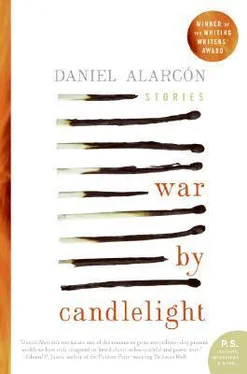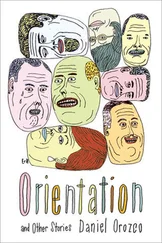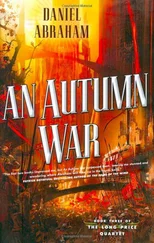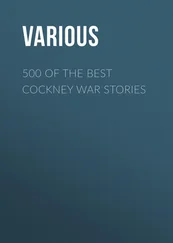“I want to work,” I said.
“Of course you do. Every man wants to work.”
“Pa, are we going to break into this house?”
He sat back. Frowned. He’d misread me. “Have people been saying things?”
I nodded.
“And what do you think about what they say?” He seemed poised to smile at the slightest hint of approval from me.
“I believe them.”
“Well, Chino,” he said and stopped.
I wanted to tell him it was all right with me. That those rich fucks could complain to God if they didn’t like it. That they could move to Miami and become American. That if they wanted to call me Piraña, then they’d better be good and fucking ready when I came in and repossessed all their treasures.
He ran a finger through his hair and winked. His large black eyes were set close, his mouth was small, comically so, but his broad smile evened everything out, organized the jumble of his features. He kept his black hair meticulously combed back. At rest, he was a caricature of an Indian. In laughter, he was a mestizo Clark Gable. So he laughed and smiled and made that smile the linchpin of his personality. Now he met my gaze, his son — I believed, his only son. “Chino, we’re just men who work. You and I both. Crazy things happen in the city.” He snapped his fingers and laughed. He hugged me. “Okay?”
The wife had a good eye for color. She had decorated the house herself, she told us. She walked us through the expansive suburban mansion, me, my father, and Felipe, pointing out renovations and design touches: a wall they’d knocked down, leaving only painted beams. “See how this adds space to the room? Gives it another feel?” she asked. The three of us nodded, our eyes wide and observant. There were skylights, balconies, a garden with blossoming trees, but we focused on what could be taken away: a computer, a stereo, even a dishwasher. The husband was an executive at a bank, an old friend of Señor Azcárate. They wanted to remodel the second floor, to add a television room, she said. It wouldn’t be that much work, maybe three or four weeks. Some painting. New carpet. A couple of new windows and light fixtures.
I worked on Saturdays, and I saw my father more then than I did at home. During the week, he was mostly gone. His youngest son was still in diapers, and my mother must have known about Carmela by then. When he was home they argued, but I didn’t know why. The construction on our house had stalled, the second floor still open air, a thick plastic sheet tied at the corners of three walls. When they were fighting, I retreated there and watched the ridges of the hills draw lines against the sky.
The family we were working for had a son, Andrés, who was in the class above me at Peruano Británico. At his house he ignored me. At school he let it be known that I had crossed the line. I felt the stares, the judgment. By the time he woke up on Saturdays, I had already been working for three or four hours. His weekends, as far as I could tell, took the shape of an extended yawn. I placed tiles in the hallway. He ate cereal. I sanded down corners and measured for the bookshelves we’d be building. He talked on the phone, loud enough for me to hear. “Yeah, Piraña’s here. You bet I’m watching my shit, huevón .” He made no attempt to hide his disdain for me. I listened to him speculate as to which girl would be the first to let him seduce her there. How far she would spread her legs. With a long phone cord dragging behind him, he paraded through the work area, complained of the dust, asked his mother to tell us that the sanding was hurting his ears. He put on a show of power. I bowed my head at the appropriate times and pretended not to hear.
One Saturday, when we were almost done, the entire family was getting ready for a wedding. The mother flitted about, changing her dress three times. The father came in to tell us that we’d have to leave a little early because they all had to go. We were hurrying our work along, trying to finish, when Andrés called out to his mother, “Mami, tell Piraña to stop with the hammering! I can’t even think!”
He stepped out into the hallway, wearing a gray wool suit and a red tie, still unknotted. He glared at me.
“What did you call him, Andrés?” his mother said sharply, coming into the room. Her hair was styled in a hard, gelled bob. She stood in front of him, waiting for him to speak.
“Piraña,” Andrés muttered.
“What?” she said, surprised, embarrassed. “Why would you call him that?” She turned to me. “Son, what’s your name?”
“Oscar, Señora.”
“Your mother works with the Azcárates, doesn’t she?”
I felt myself turning red. “Yes, Señora.”
“And what year are you in?”
“Third, Señora.”
Andrés watched this exchange with practiced condescension. In his elegant suit, he was transformed, ready to be photographed for Lima’s society pages. He was taller than me, bathed at that moment in superiority, profound and harsh. I wore my work clothes, worn at the knees and splattered with paint.
“Andrés,” his mother said, “this is Oscar. This young man is a student at your school. He is friends with Sebastián Azcárate. Now shake his hand and introduce yourself like a gentleman.”
His eyes steeled, and his hand too. He held it out.
“Andrés,” he said.
“Oscar.”
We shook. No, you were right, I thought, Piraña concha tu madre. That’s my fucking name. I glared at him and held his hand, perhaps a moment too long. I squeezed.
“That’s enough, boys,” his mother said, and they both turned to leave.
“Good afternoon, Señora,” I called.
We played to passengers in Santa Anita, Villa Maria, and El Agustino. We rode through Comas, Los Olivos, and Carabayllo. Three days. Lima on display, in all her grandeur, the systems of the city becoming clear to me: her cells, her arteries, her multiple beating hearts. We collected laughs and coins until the money weighed heavy in my suit pocket. I was a secret agent. I saw six people I knew: among them, an ex-girlfriend, two old neighbors from San Juan, and a woman from the university. Even a colleague from the paper. Exactly zero recognized me. I was forgetting myself too, patrolling the city, spying on my own life. I’d never felt this way: on display, but protected from the intruding eyes of strangers and intimates.
I watched the ex-girlfriend chew the nail of her pinky. When we were together, she’d seemed to me the type that would flower, grow into herself, become more attractive each year. But she was twenty-seven now and still not beautiful. I looked her in the eye as she handed me a coin, felt a shock when her finger grazed my open palm. She had no idea who I was.
My old man had paid off the security guard. He’d given us a time and a day. The whole family was out of town. I’d been waiting six months for this. I was a good student and they hated me. I was a good soccer player and they mocked me. I didn’t understand a thing about them, or why they were the way they were.
We rode in Felipe’s windowless van. They tossed me over the wall. I opened the garage and they backed the van in. The rest was easy. The television, the VCR, the computer, the stereo — each was carried down and packed carefully into the van. We moved nimbly through the dark house, carrying the wares as if they were works of art. And they were. A sleek cordless phone meant thirty soles. A blender, fifteen, if you knew where to sell it. It was so ordered and efficient, it didn’t seem like stealing at all.
My father told me once that in Lima anything can be bought and sold. We were walking through the market in San Juan, past the fruit stalls, flies buzzing around the meat and fish. A woman sold clothes piled in high, disordered mounds. Fake Barcelona jerseys. Stolen car parts and bags and watches. An old man stood by his cart of hardware: hammers, pliers, and nails, bent, rusty, unmistakably used. My old man found it pathetic. “Used nails!” he cried out. “For the love of God, are we this poor?”
Читать дальше












